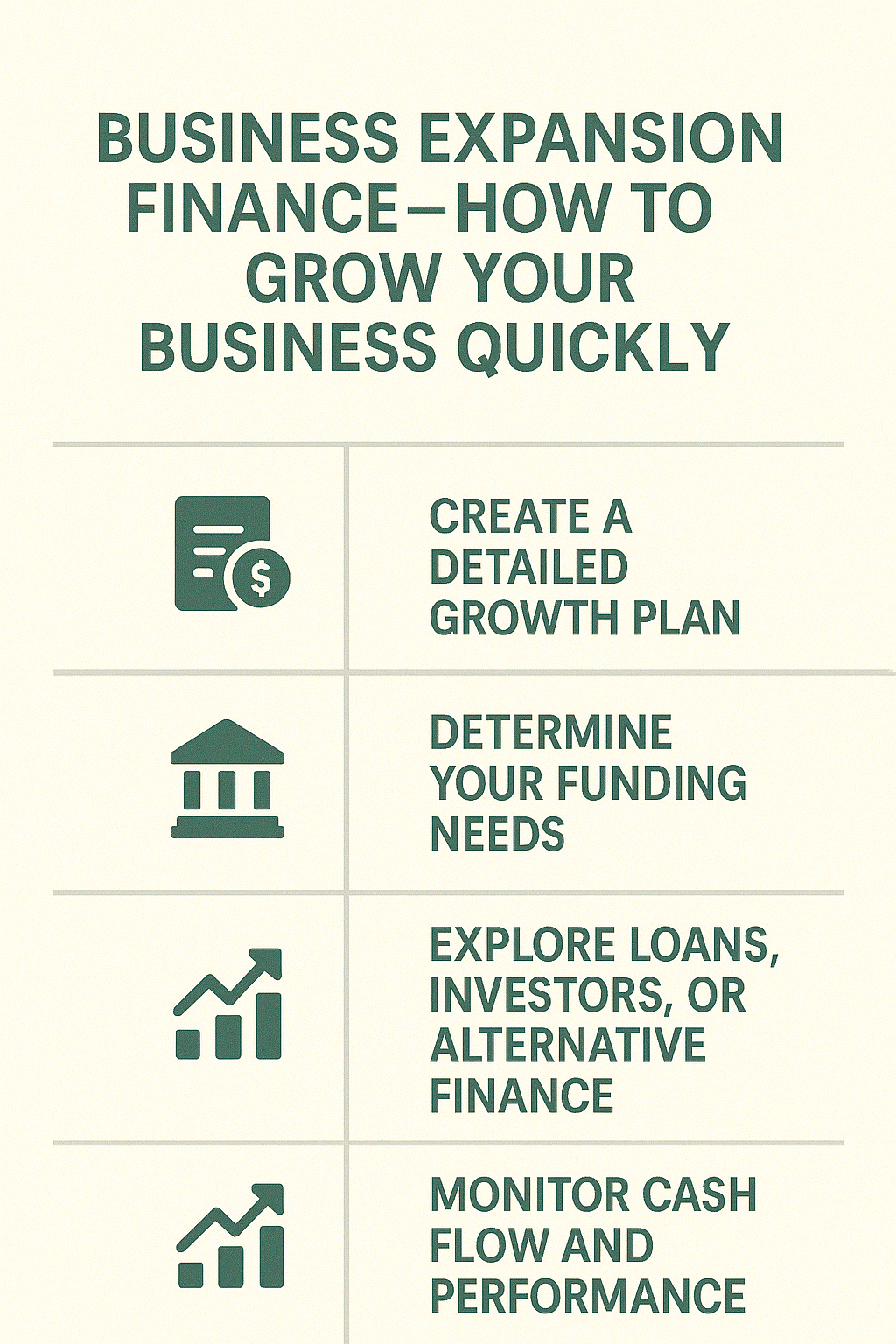Growing your business quickly often requires more than ambition—it takes capital. Whether launching new products, scaling operations, or expanding into new markets, securing the right business expansion finance is critical to success. This guide breaks down the essential strategies to help you fund your growth effectively.
Evaluate Your Financing Needs
Start by clearly defining your expansion goals. Are you investing in new equipment, hiring staff, boosting inventory, or launching a marketing campaign? Each of these initiatives requires different levels of funding.
Conduct a thorough financial assessment of your current operations. Identify exactly how much capital you need and ensure it’s aligned with realistic revenue projections and timelines.
Explore All Available Funding Options
There’s no one-size-fits-all solution when it comes to financing. Consider the following options:
-
Business Loans: Traditional banks or online lenders can provide lump-sum capital with predictable repayment terms.
-
Lines of Credit: Flexible funding that allows you to draw funds as needed.
-
Venture Capital and Angel Investors: Suitable for high-growth startups seeking large capital infusions in exchange for equity.
-
Crowdfunding is viable if you have a strong product and a passionate customer base.
-
Strategic Partnerships: Collaborations that include financial backing in exchange for shared growth.
Weigh the pros and cons of each based on your business type, creditworthiness, and growth stage.
Create a Detailed and Convincing Business Plan
Investors and lenders need to trust your vision. A strong business plan should include:
-
Expansion objectives and milestones
-
Market research and competitive analysis
-
Financial forecasts and cash flow projections
-
A detailed explanation of how the funds will be used
Your plan should demonstrate a clear path to profitability and justify the funding request.

Strengthen Your Financial Position
Ensure your financial records are current and reflect a healthy, sustainable business. Lenders and investors will examine:
-
Revenue trends
-
Profit margins
-
Debt-to-income ratios
-
Current cash flow
The more stable and well-documented your financials are, the easier it is to access funding.
Tap into Government Grants and Programs
In Australia and many other countries, governments offer programs that support business expansion. These may include:
-
Grants for innovation, export, or hiring
-
Low-interest loans for SMEs
-
Tax incentives and rebates
Explore programs through local, state, and federal business portals to see what support you’re eligible for.
Improve Supplier and Vendor Relationships
Financing isn’t always external. You can unlock internal capital by negotiating better terms with suppliers:
-
Ask for extended payment deadlines
-
Secure bulk discounts or early payment incentives
-
Consider consignment or vendor-financed inventory
These steps can help free up working capital and reduce the need for large external funding.
Streamline Operations to Maximize Cash Flow
Before taking on new debt, optimize your current operations:
-
Automate repetitive tasks
-
Reduce waste in production or service delivery
-
Cut unnecessary subscriptions or overhead costs
Efficient operations increase profitability and reduce your dependence on external finance.
Get Professional Guidance
Business expansion is a complex process—don’t go it alone. A financial advisor, accountant, or business consultant can:
-
Help structure your funding strategy
-
Identify the best financing instruments
-
Prepare loan or investor-ready documents
-
Provide insights into tax and legal considerations
This outside perspective can significantly increase your chances of securing the proper funding on favorable terms.
Final Thoughts
Financing business expansion takes planning, clarity, and strategy. By evaluating your needs, exploring all funding avenues, and optimizing operations, you can access the capital required to fuel your business’s growth.
Want help navigating your expansion financing strategy? Reach out to a trusted business advisor today.




